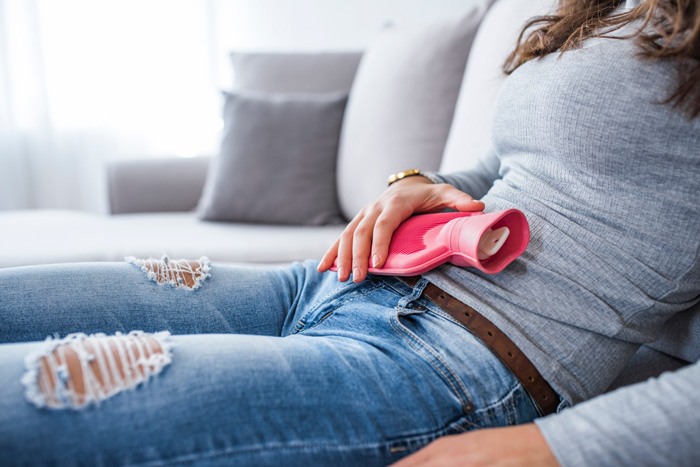
Period cramps are often thought of as inevitable, but the truth is, they often have a lot to do with your diet and lifestyle. If you find yourself in discomfort during your period, ask yourself if you’re doing any of the following things below.
Drinking alcohol
“Even if you initially feel like a glass of wine helps your period pain, alcohol is not your friend this time of the month,” says Savita Ginde, the VP of medical affairs at Stride Community Health Center in Colorado. The problem with alcohol is that it makes you retain water, which can lead to bloating and inflammation. It can also deplete your body’s supply of magnesium and water, which are both important for relief of cramping.
Consuming too much salt
According to Ginde, salt is similar to alcohol in that it can increase bloating and consequently lead to more inflammation and pain.
Using a copper IUD
If you’ve just gotten a copper IUD and your periods become more uncomfortable, your switch in birth control method could be to blame, says Ginde. The good news is that this will likely subside in around three to six months.
Drinking coffee
“Because caffeine constricts our blood vessels, it increases tension throughout the body, which can increase pain during menstruation,” says Ginde. If you’re a coffee fiend and are experiencing period pain, consider cutting back and seeing if it helps.
Sitting all day
The benefits of exercise for period pain are manifold. It helps you destress and sleep, which reduces all kinds of pain, explains Ginde. Light exercises like yoga and pilates are particularly good for reducing period pain.
Having an underlying medical condition
If you’re experiencing severe period pain, it’s good to see a doctor to figure out if you could have an underlying health condition. A few issues that can cause period pain include endometriosis, pelvic inflammatory disease, fibroids, and ovarian cysts. There could also be non-gynecological health conditions like celiac disease, Crohn’s disease, and irritable bowel syndrome behind period pain, says Marcy Maguire, a fertility specialist at RMA, a national fertility network headquartered in New Jersey.
To get the root of your period pain, Maguire recommends keeping a journal of when you experience it and what makes it better or worse. Treatments might include ibuprofen, other pain medications, or birth control pills.
The bottom line? “If your period pain keeps you from doing your daily activities, it’s important to talk with your medical provider about the pain and ways to possibly relieve it, and together investigate the underlying cause,” says Ginde.
xx, The FabFitFun Team




